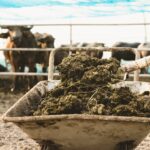As the agricultural sector remains a crucial part of South Africa’s economy, the prospect of buying or selling a farm is a significant endeavor. However, amidst legitimate transactions, there lurk scams that unsuspecting individuals must be vigilant about. Here are 10 farm sale scams to be wary of when navigating the agricultural real estate market in South Africa.
1. Title Deed Frauds:
- Scammers may present false or forged title deeds, claiming ownership of a property they don’t actually possess. Always verify title deeds with official land registry records.
2. Online Listings with Unrealistic Prices:
- Be cautious of online listings that display exceptionally low prices compared to the market value. Scammers often use attractive pricing to lure in potential buyers.
3. Impersonation of Legitimate Agents:
- Scammers may impersonate legitimate estate agents, providing fake credentials and false assurances. Always verify the credentials of the agent through reputable sources.
4. Pressure Tactics:
- Scammers may use high-pressure tactics, claiming urgency or time-sensitive offers to push buyers into hasty decisions. Take the time to thoroughly research and verify before committing.
5. Fake Property Tours:
- Be wary of sellers or agents who refuse to provide physical property tours or insist on virtual tours only. Insist on visiting the property in person before making any decisions.
6. Deposit Scams:
- Scammers may request large upfront deposits before any legal processes or property inspections occur. Legitimate transactions involve a more structured and secure deposit process.
7. Non-Existent Properties:
- In some cases, scammers may advertise non-existent properties or present properties that are not for sale. Always cross-reference property listings with reputable sources.
8. Remote Transactions:
- Avoid transactions where the seller insists on completing the entire process remotely, without any physical presence. Legitimate sales involve various on-site assessments and verifications.
9. Unverified Financial Transactions:
– Be cautious of sellers who request payments through untraceable or unconventional methods. Legitimate transactions involve transparent and verifiable financial processes.
10. Offers Too Good to Be True:
– If an offer seems too good to be true, it likely is. Scammers may dangle unrealistically attractive deals to entice potential buyers. Exercise caution and conduct thorough due diligence.
Navigating the farm sale market in South Africa requires a combination of diligence and skepticism. Engage with reputable estate agents, verify property details independently, and be wary of any red flags that might indicate a potential scam. By staying informed and cautious, prospective buyers can protect themselves from falling victim to fraudulent farm sale schemes and ensure a secure and legitimate transaction in the dynamic world of agricultural real estate.
Join 'Farmers Mag' WhatsApp Channel
Get the latest Farming news and tips delivered straight to your WhatsApp
CLICK HERE TO JOIN






